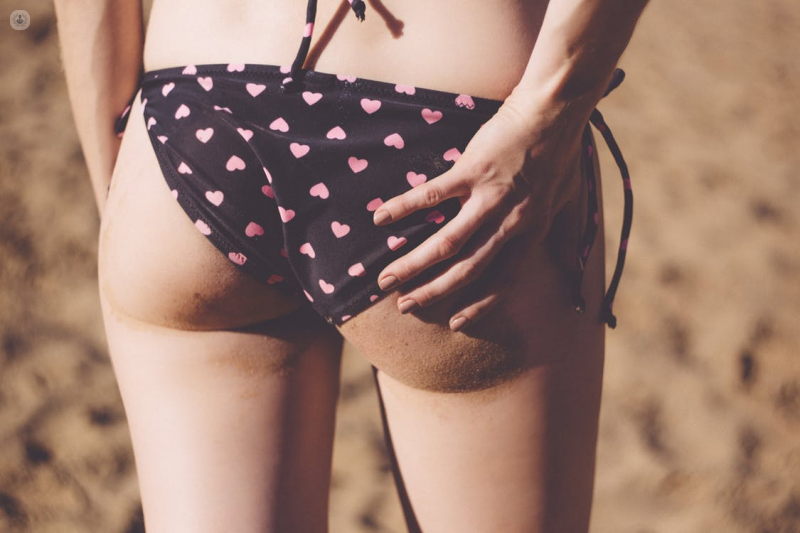


What is pruritus ani?
Pruritis ani is the medical term for an itchy bottom or irritation of the skin around the anus (“pruritis” refers to itching sensations of the skin). An itchy bottom is a common symptom that can be caused by a number of conditions. Despite this, patients are often reluctant to see a doctor about it as they are embarrassed. It is thought to be more common in men than women.
Itching may get worse at night or after defecation. It is advisable not to scratch, as this can cause tiny breaks in the skin, which, combined with the general moisture and humidity of the anal area, cause more irritation and the itching gets worse
There are two main types of anal itching:
- Primary anal itching (idiopathic): has no underlying cause, and is the most common type.
- Secondary anal itching: pruritis is due to an underlying cause such as an infection, dermatological problems, systemic diseases, etc.
Causes of an itchy bottom
Some possible causes of anal itching include:
- Hygiene – over-cleaning and under-cleaning the anus can both lead to itching.
- Skin irritants, such as soaps
- Excessive rubbing of the area with rough toilet paper or wet wipes
- Skin conditions, e.g. dermatitis, psoriasis, etc.
- Anorectal conditions, e.g. piles, anal fissures, anal fistulas, etc.
- Infections, including STDs
- Parasites, e.g. hookworm and threadworms, which lay eggs in the anal folds
- Systemic diseases, e.g. inflammatory bowel disease (IBD), diabetes, jaundice, etc.
- Excess sweating or humidity
- Some foods or beverages with dietary irritants, such as spicy or acidic foods
- Diarrhoea or constipation
- Psychological problems, e.g. stress or anxiety
Can an itchy bottom be prevented?
Some tips to prevent anal pruritus or stop it getting worse are:
- Resist the urge to scratch. If you are prone to scratching in your sleep, wearing cotton gloves at night and keeping your nails trimmed can help
- Keep the perianal area clean and dry. In people with anal itching it is recommended to wash with clear water (without soap) after defecation and pat dry, since wiping can further irritate the area.
- Do not use soap, bath oils, or other chemical products when cleaning the anal area
- Eat foods with high fibre content, to avoid diarrhoea and constipation
- Avoid spicy or acidic foods and drinks with caffeine
- Avoid wearing tight underwear
What is the treatment for an itchy bottom?
The treatment of anal itching usually focuses on maintaining a proper routine for proper hygiene. If there is a secondary cause, the treatment will vary.
In general, the basic treatments for anal itching include:
- Topical medication – various creams and ointments exist to help relieve itching and irritation. It is not recommended to use more than one type at once or to use any cream or ointment for longer than a week.
- Oral medication – may be prescribed if there is an infection.
You should see a doctor if:
- The itching doesn’t ease within a few days
- Comes back frequently
- You are experiencing itching elsewhere on your body
- Struggling to sleep due to itching
